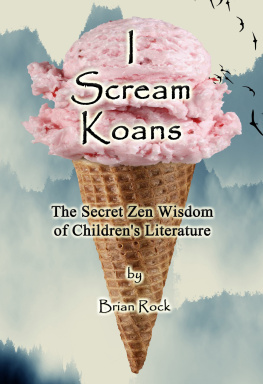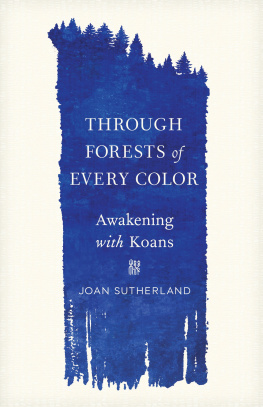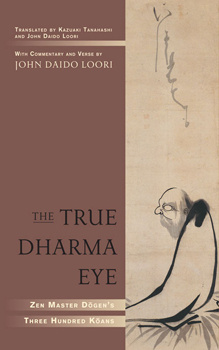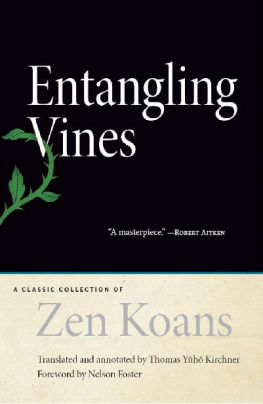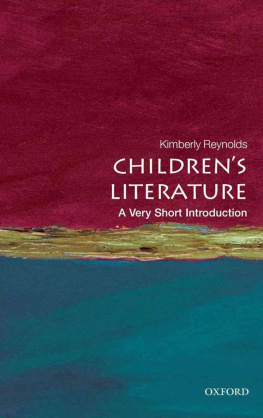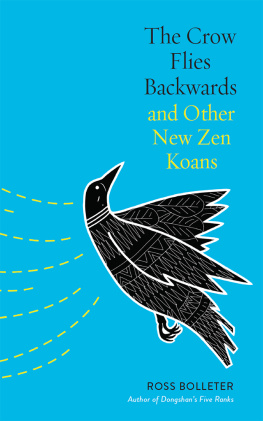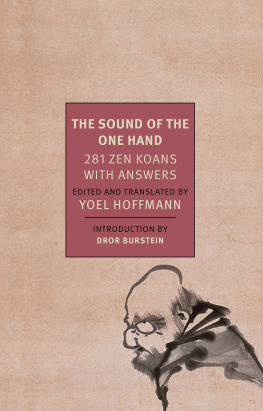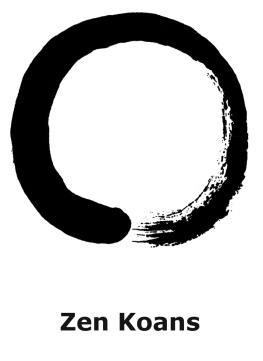Brian Rock - I Scream Koans (The Secret Zen Wisdom of Childrens Literature)
Here you can read online Brian Rock - I Scream Koans (The Secret Zen Wisdom of Childrens Literature) full text of the book (entire story) in english for free. Download pdf and epub, get meaning, cover and reviews about this ebook. year: 2018, publisher: First Light Publishing, genre: Religion. Description of the work, (preface) as well as reviews are available. Best literature library LitArk.com created for fans of good reading and offers a wide selection of genres:
Romance novel
Science fiction
Adventure
Detective
Science
History
Home and family
Prose
Art
Politics
Computer
Non-fiction
Religion
Business
Children
Humor
Choose a favorite category and find really read worthwhile books. Enjoy immersion in the world of imagination, feel the emotions of the characters or learn something new for yourself, make an fascinating discovery.
- Book:I Scream Koans (The Secret Zen Wisdom of Childrens Literature)
- Author:
- Publisher:First Light Publishing
- Genre:
- Year:2018
- Rating:4 / 5
- Favourites:Add to favourites
- Your mark:
- 80
- 1
- 2
- 3
- 4
- 5
I Scream Koans (The Secret Zen Wisdom of Childrens Literature): summary, description and annotation
We offer to read an annotation, description, summary or preface (depends on what the author of the book "I Scream Koans (The Secret Zen Wisdom of Childrens Literature)" wrote himself). If you haven't found the necessary information about the book — write in the comments, we will try to find it.
Brian Rock: author's other books
Who wrote I Scream Koans (The Secret Zen Wisdom of Childrens Literature)? Find out the surname, the name of the author of the book and a list of all author's works by series.
I Scream Koans (The Secret Zen Wisdom of Childrens Literature) — read online for free the complete book (whole text) full work
Below is the text of the book, divided by pages. System saving the place of the last page read, allows you to conveniently read the book "I Scream Koans (The Secret Zen Wisdom of Childrens Literature)" online for free, without having to search again every time where you left off. Put a bookmark, and you can go to the page where you finished reading at any time.
Font size:
Interval:
Bookmark:
I Scream Koans The Secret Zen Wisdom of Childrens Literature by Brian Rock Let us feed on joy - Buddha Copyright 2018 Brian Rock Published by First Light Publishing Richmond, VA Library of Congress Control Number: 2018948047 Rock, Brian. I Scream Koans The Secret Zen Wisdom of Childrens Literature Summary: Meditations on spiritual truths contained in classic and contemporary childrens literature. ISBN# 978-0-9754411-6-9 1. Religion. 2. 3. Buddhism. 4. 4.
Christianity. 5. Childrens Literature Introduction A koan is a traditional Zen Buddhist technique to stimulate awareness beyond thinking. (Zen, by the way, simply means meditation.) The most famous example is, What is the sound of one hand clapping? Your first instinct is to think it doesnt make a sound at all. But what if silence is the answer? How do we still our mind to achieve that level of silence? But clapping is a way of getting attention or showing approval. So, what is the one had clapping for? Are we trying to get our own attention? And on and on the questions pile up.
So, you see, the koan is designed to be a paradox, a riddle without an answer. It is designed to point out the limits of logical thinking, and thereby lead to enlightenment. The word koan actually means legal case or file of legal documents. In the rigid, bureaucratic hierarchy of ancient China, many court cases were literally matters of life or death. Zen masters chose the term to emphasize the importance of attaining enlightenment you are either spiritually alive or you are spiritually dead. Although the truth contained in each koan is serious, the koan itself, or the key to unlocking the koan may appear comical, nonsensical, even childish.
Yet another paradox on the path to enlightenment. And, of course, enlightenment is not limited to any one era of time, or place, or culture. Zen Buddhism itself evolved over time with input from India, China, Japan, and Southeast Asia. And as the writings of Thich Nhat Hanh and Marcus Borg illustrate, Siddhartha Gautama (aka The Buddha) would have recognized Jesus Christ as a fellow Zen master. There are modern commentators who regard baseball legend Yogi Berra, and other non-Buddhists as modern-day Zen masters as well. (For those interested in learning more about the history of Zen and Koans, I have included a brief reading list at the end of this book.) With this in mind, I incorporate both Eastern and Western spiritual terminology (and historical figures) throughout this book to accommodate readers from different traditions.
As The Tibetan Book of Living and Dying by Sogyal Rinpoche notes, Saints and mystics throughout history have adorned their realizations with different names but what they are all fundamentally experiencing is the essential nature of the mind. Christians and Jews call it "God"; Hindus call it "Brahman," Sufi mystics name it "the Hidden Essence," and Buddhists call it "buddha nature." I use the word, God in place of the buddha nature, as most Western readers are more familiar with this term. Please feel free to mentally substitute whatever terms work best for you where appropriate. The point is, for the truly aware, a moment of Zen can be found anywhere; and an enlightenment-inspiring koan can come from anyplace; even the pages of a childrens book. Which leads us to Did you ever stop to think , and forget to start again?  A.A. Milne Winnie The Pooh Sometimes we get so caught up in thinking, plotting, and planning, that we forget to act.
A.A. Milne Winnie The Pooh Sometimes we get so caught up in thinking, plotting, and planning, that we forget to act.
Sometimes we get so caught up in working, exercising, and just getting through the day, that we forget to think. But thinking without acting is pointless And acting without thinking is reckless Here lies the very heart of Zen: the balancing of opposites. The path to enlightenment requires harmony between the competing impulses of human nature - Masculine/Feminine, Active/Receptive, Mental/Emotional, etc. But to bring ourselves into balance requires an awareness of our own imbalance. So take a moment, two or three times a day to just BE AWARE. Or in the words of Zen Master Ikkyu, Attention! Attention! Attention! Ask yourself if youre thinking too much and doing too little; or giving too much and not allowing yourself to receive.
Then make an effort to do or be more of what you lack. And if it feels awkward at first, dont worry. If a bear of very little brain can do it, so can you! Harold knew that the H I G H E R up he went, The farther he could see.  Crocket Johnson Harold & The Purple Crayon Harold takes his purple crayon, creates a new world, and then steps into it. So do we all. Whether we know it or not, we create our own reality, our own ups and downs, and our own destiny.
Crocket Johnson Harold & The Purple Crayon Harold takes his purple crayon, creates a new world, and then steps into it. So do we all. Whether we know it or not, we create our own reality, our own ups and downs, and our own destiny.
In the words of the Buddha, Whatever a monk pursues with his thinking and pondering, that becomes the inclination of his awareness. Or as it is often paraphrased, What you think, you become. If we choose to wallow in the depths of fear and self-pity, then the reality we create is very dark and dense. Which in turn makes it hard to see the beauty that surrounds us. But if we choose to rise to our highest ideals of love and hope and charity; then we create a light and luminous reality. We become better able to see the good in others and ourselves.
With enough practice, we might even join the Masters and Saints (and Harold himself) and be able to see far enough to find our way home to our original, radiant (and possibly purple) Spirit Self. No act of kindness, no matter how small, is ever wasted. 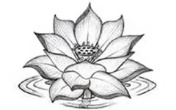 Aesop Aesops Fables The law of Karma states that what you do to others will one day be done to you. Most people understand this as a form of delayed punishment. If you steal from your neighbor, one day someone will steal from you. But there is also a positive side to Karma.
Aesop Aesops Fables The law of Karma states that what you do to others will one day be done to you. Most people understand this as a form of delayed punishment. If you steal from your neighbor, one day someone will steal from you. But there is also a positive side to Karma.
The acts of kindness you do to others also return to you. As Buddha put it, If you do not tend one another, then who is there to tend you? And beyond the karmic balance sheet, there is a deeper understanding. Just as Jesus said, Whatsoever you do to the least of these, you do unto me; your every interaction with a living being is an interaction with the Divine. For the Divine Spirit lives in us all. And your acts of kindness are nothing less than gifts to God.  Margery Williams The Velveteen Rabbit Appearances can be deceiving.
Margery Williams The Velveteen Rabbit Appearances can be deceiving.  Margery Williams The Velveteen Rabbit Appearances can be deceiving.
Margery Williams The Velveteen Rabbit Appearances can be deceiving.
A shiny, new car can break down on the highway. A fancy toy with whistles and lights can be rather boring. A smiling face can hide a devious mind. Likewise, a rusty car may have a precision engine. A tattered toy may give years of enjoyment. And a haggard face may cover a beautiful soul.
In the end, appearances always give way to the truth. Or in the words of the Buddha, Three things shine before the world and cannot be hidden: the moon, the sun, and the truth. Whoever says, Clothes make the man, has never spent any time developing their mind or heart or soul. And those are the places we should look first to assess someones character. Again, the Buddha tells us, What good is hide clothing? While your inward state is a tangle, you polish your exterior. How someone looks is irrelevant, and often misleading.
Next pageFont size:
Interval:
Bookmark:
Similar books «I Scream Koans (The Secret Zen Wisdom of Childrens Literature)»
Look at similar books to I Scream Koans (The Secret Zen Wisdom of Childrens Literature). We have selected literature similar in name and meaning in the hope of providing readers with more options to find new, interesting, not yet read works.
Discussion, reviews of the book I Scream Koans (The Secret Zen Wisdom of Childrens Literature) and just readers' own opinions. Leave your comments, write what you think about the work, its meaning or the main characters. Specify what exactly you liked and what you didn't like, and why you think so.

